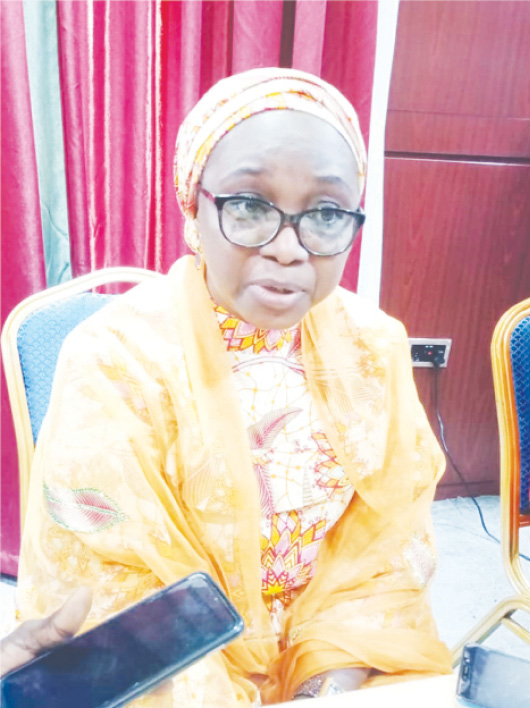Dr Amina Dorayi is a public health physician and the Country Director of Pathfinder International, Nigeria. In this interview at the sidelines of the organisation’s Advanced Family Planning project (AFP)’s Training of Trainers for Journalists, she spoke on ways to tackle family planning challenges in the country, and the absence of allocation to family planning in the 2022 budget among others.
Nigeria did not attain the 27 per cent modern Contraceptive Prevalence Rate (mCPR) by 2020 target it set since 2012. What do you think is the way forward in addressing this and other family planning challenges?
- Nigeria not ripe for direct primaries — IPAC
- N540bn Zungeru power project to be commissioned in 4 phases – Contractor
Family planning is different from pregnancy and delivery, and why it is a bit challenging for people to understand its importance is because they feel they are healthy and don’t need it. There is also the issue of culture and religious interpretation on having many children.
So there is a need to ensure that there is basic education for everyone, especially young girls so that they get to the age of 18 or secondary level before they get married. Early marriage is one of the things that make our contraceptive prevalence rate to be low.
Also, information is important. Women and girls need to know the importance of family planning in their lives; the importance of spacing and planning their children.
It is also clear now that if you don’t want to plan your family for health reasons, you can plan for economic reasons.
So, too frequently and too many pregnancies without taking care of the body is not good.
While the body is meant to have children, it is also like a machine, and the more you go through the process, the more you need rest. So it also affects the economy because women who give birth often are not able to contribute their quota to the economy.
There is a lot around family planning that is not only health but also traditional and economic.
Some now understanding it in terms of school fees for many children. It is now coming to the fore that family planning is important for human capital development. And we have to address it as a holistic approach not as a health matter only.
So what should be done differently from previous years?
I think we need to consider family planning beyond what people think it is. It is definitely beyond child spacing.
So what we should do is to portray family planning as a human capital development function. If a mother continues to have children, it affects the development of the child and the ability of the mother to breastfeed from zero to two years.
Also, there is no way a family with eight children and the same income can be able to provide adequately compared to a family with three to four children with the same income. It will affect the quality of education for the children.
Also, the quality of time they have for each child cannot be compared because of the many issues they have to take care of.
Family planning also addresses quality. When you talk of early marriage, you are also talking about lack of education, so it is another vicious cycle with the girl child and her own family with poverty. So that is how the human capital index for Nigeria will continue going round and not improve if we don’t adopt family planning as a human capital index.
What is your take on family planning budget in the country?
I think, first of all, we have what is called the ‘Abuja Declaration’ where the health sector is supposed to have at least 15 per cent of the annual budget of the country allocated to it.
I don’t think we have met that; in many of the states, we have not come to even close to meeting that.
So, we have not even met the health budget. How do we even meet the family planning budget?
Unfortunately, in the country’s 2022 budget, we have seen that family planning has not been captured as we think it should be.
So with a national budget not capturing family planning, it means that our sub-national level may not also capture family planning. This means a lot for women and the work that we do because we know that family planning is crucial to development.
Family planning has a lot of benefits and ensuring that resources for family planning are available at national and sub-national levels is there for the delivery of family planning services will reduce maternal and child mortality. And when these indices are high, our development indices will be much higher than they currently are in the country.
We are not happy with the current state of the budget for health in general – for reproductive health and for family planning -because we believe, like Professor Mahmoud Fathalla (a past president of the International Federation of Gynaecology and Obstetrics) said every nation that wants to progress must put the health and well-being of their women and girls at the forefront and that is through policies, putting the budget in place and to make sure that they are not only budgeted but that they are implementable. And that they are released and the resources are implemented based on what the plans are at the states and national level.

 Join Daily Trust WhatsApp Community For Quick Access To News and Happenings Around You.
Join Daily Trust WhatsApp Community For Quick Access To News and Happenings Around You.


